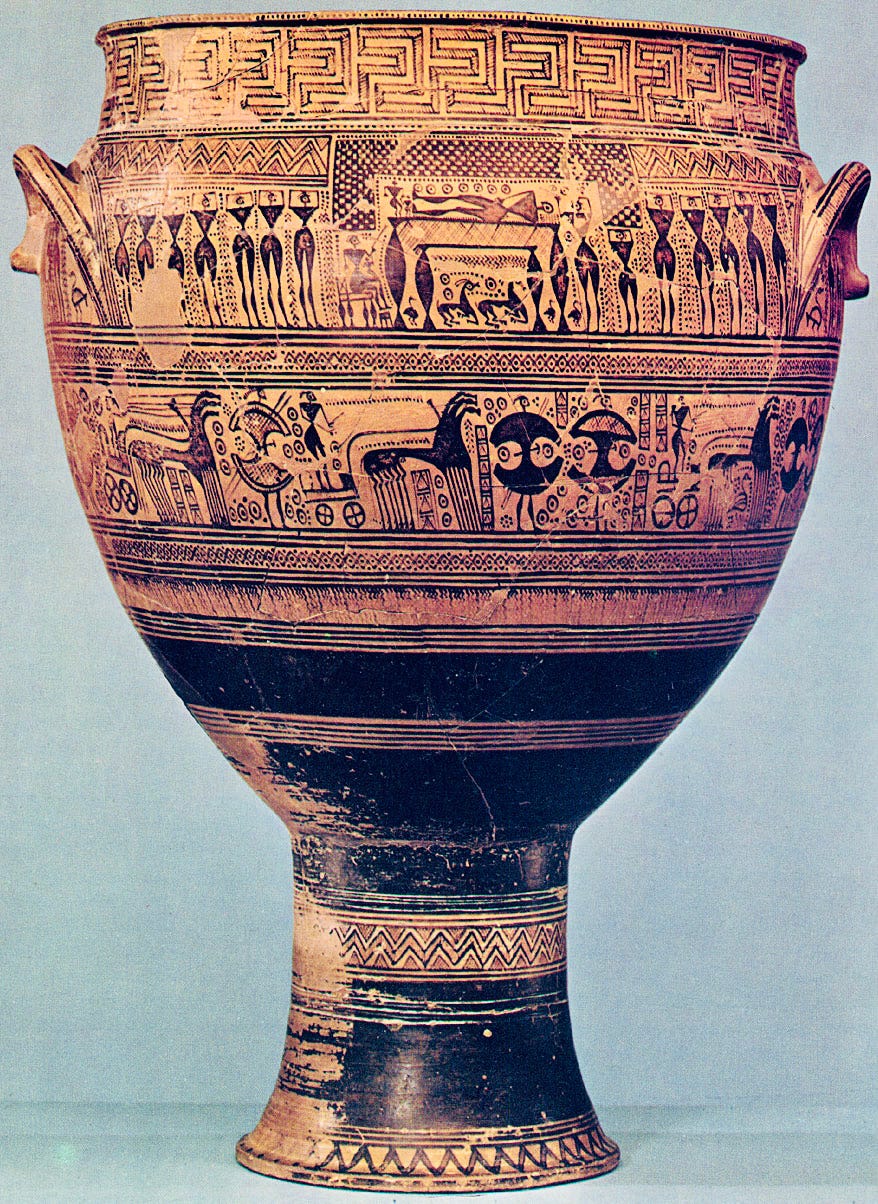The Anger of Achilles
Translating Homer's Iliad
The Iliad of Homer begins with the word “Anger”, which in Greek is mênis (a word etymologically related to ‘mania’). In ancient times the epic was regularly called Mênis rather than ‘the Iliad’, because the anger of Achilles, to which the word refers, is the driving principle of the story.
After invoking the Muse of poetry ‘Sing, goddess, of the anger of Achilles…’, Homer tells of a few weeks shaped by Achilles’ anger (rather than the whole tale of the Sack of Troy from start to finish). That anger is first directed at the commander of the Achaean (Greek) forces, Agamemnon, after the latter petulantly expropriates Achilles’ captured concubine Briseis, having been forced to return his own slave-woman Chryseis to her father Chryses at the behest of the god Apollo (whose priest Chryses is). In fury Achilles, the strongest warrior in the Greek army, withdraws from battle, asking his goddess-mother Thetis to intercede with the chief of the gods, Zeus, to ensure that the Achaeans suffer at the hands of their Trojan enemies, led by Hector. Zeus agrees to put this plan into effect.
Eventually, however, Hector kills Achilles’ beloved friend Patroclus in battle. Achilles’ anger is redirected towards the Trojans. He kills Hector, but his anger doesn’t let up: he drags his foe’s dead body daily around the walls of Troy, to the deep distress of Hector’s aged father Priam, who bravely comes to the Achaean camp to plead with Achilles to return his son’s body for burial. Impressed and moved by the old man’s courage, Achilles’ anger is finally assuaged. He agrees to return Hector’s body and to allow the Trojans to bury him. That is how the Iliad ends.
The arc of the action is therefore predicated on anger: the epic ends only when that anger is finally brought to a close. It seems to me important that the poem in translation should begin with the word ‘anger’ in some way, though it’s hard to do this in English because ‘anger’ is the object of ‘sing’. I decided to attempt to translate the opening seven lines of the Iliad which succinctly outline the shape of story. The rhythm that emerged in English was a seven-beat line (an ‘iambic heptameter’):
The anger of Achilles son of Peleus, goddess, sing: the fateful wrath that foisted on Achaeans countless woes, and catapulted down to Hades many mighty souls of heroes, whose remains were left as carrion for dogs and as a feast for birds; thus Zeus’s plan was put in train; 5 start from the time that these two first engaged in bitter strife, the Great King, son of Atreus, and Achilles goddess-born.
The Greek is in dactylic hexameters (six bars of dactyls, which I described in a post of Sep 2023). In ancient Greek the accents indicated a rise in pitch (a rise and fall for the circumflex), not a stress accent.
μῆνιν ἄειδε θεὰ Πηληϊάδεω Ἀχιλῆος οὐλομένην, ἣ μυρί᾽ Ἀχαιοῖς ἄλγε᾽ ἔθηκε, πολλὰς δ᾽ ἰφθίμους ψυχὰς Ἄϊδι προΐαψεν ἡρώων, αὐτοὺς δὲ ἑλώρια τεῦχε κύνεσσιν οἰωνοῖσί τε δαῖτα, Διὸς δ᾽ ἐτελείετο βουλή, 5 ἐξ οὗ δὴ τὰ πρῶτα διαστήτην ἐρίσαντε Ἀτρεΐδης τε ἄναξ ἀνδρῶν καὶ δῖος Ἀχιλλεύς.
Notes
1 Peleus: -eu- in Greek was (and is) a monosyllable. Peleus has two syllables, as does Atreus in line 7.
2 Achaeans: the Greek text does not have a definite article.
3 Zeus’s plan: to requite and honour Achilles by making the Achaeans suffer from his absence.



I really like your translation and the decision to begin with μῆνιν. I think Fagles made a good decision to start with “Rage” despite how loose his rendition is. I’m curious about your choice of ‘anger’ vs. ‘rage’ to translate μῆνιν? Also great point to remind us that the central point of the poem is Achilles’ anger, not the battle for Troy.
I love this. Thank you for this and noting the contrast with traditional translations.